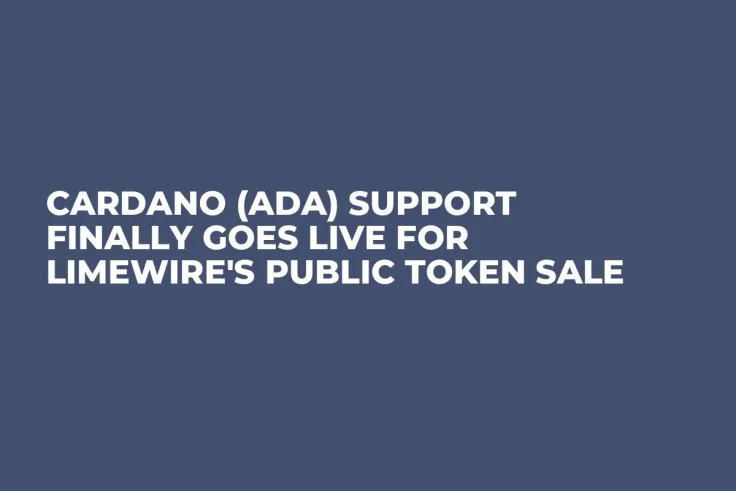
LimeWire, the well-known content creation platform, has recently begun to accept Cardano's ADA for its public token sale.
As reported by U.Today, the decision to accept ADA was made following an enthusiastic response from the Cardano community, which exceeded LimeWire's initial target of 300 retweets by reaching over 1,500.
The integration of ADA payments is now active, allowing users to purchase LimeWire Tokens (LMWR) on the official LimeWire platform.
A wide range of payment methods, including major cryptocurrencies and credit cards, is accepted, with Cardano's ADA being a notable inclusion.
Following the public sale, the LimeWire Token is expected to be listed on at least four major cryptocurrency exchanges, with additional listings to be announced subsequently.
LimeWire was first established in 2000 by Mark Gorton, a former Wall Street trader. The platform quickly became one of the most popular peer-to-peer (P2P) file-sharing networks in the world, particularly known for its music-sharing capabilities.
Its fame, however, was not without controversy. LimeWire's ease of use and lack of content filters made it an easy target for illegal file sharing, leading to numerous legal disputes.
The most notable of these disputes came to a head in 2010 when the Recording Industry Association of America (RIAA) filed a lawsuit against LimeWire for copyright infringement. The court ruled in favor of the RIAA, and LimeWire was ordered to cease its operations, marking the end of one of the internet's most infamous file-sharing services.
But that wasn't the end for LimeWire. The platform, after a period of silence, reemerged with a new focus and business model. Instead of facilitating P2P file sharing, LimeWire pivoted to become a platform for content creators.
The introduction of the LimeWire Token (LMWR) is a further demonstration of this evolution.

 Vladislav Sopov
Vladislav Sopov Dan Burgin
Dan Burgin